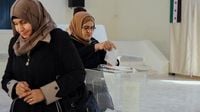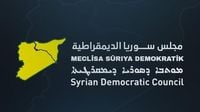On Sunday, October 5, 2025, Syrians witnessed a moment many thought might never come: the first elections for the People’s Assembly since the fall of Bashar al-Assad’s decades-long rule. Yet, despite the historic overtones, the process has sparked fierce debate and deep skepticism across the war-ravaged nation, with critics and supporters alike questioning whether the vote represents real change or simply a new chapter in Syria’s long saga of political exclusion and turmoil.
According to Al Jazeera, the interim government, led by President Ahmed al-Sharaa, framed the elections as a “historic moment after more than 50 years of dynastic, oppressive al-Assad rule” and touted it as “another test for the new government.” However, the electoral process was anything but straightforward. Instead of a direct, popular vote, only around 7,000 members of electoral colleges—appointed by committees established earlier this year—were eligible to cast ballots. These colleges, drawn from 60 districts, were responsible for selecting candidates from among their own ranks, with 1,578 individuals vying for seats.
This complex, indirect system was born out of necessity, government officials claimed. After 14 years of brutal civil war and the sudden collapse of the Assad regime last December, the country faces massive displacement, administrative chaos, and ongoing violence. “We don’t even know how many Syrians are in Syria today,” Benjamin Feve of the Syria-focused Karam Shaar Advisory consulting firm told The Associated Press. “This makes it really difficult to draw electoral lists,” he explained, highlighting the logistical nightmare of organizing a traditional nationwide election, not to mention the challenge of enabling millions of refugees to participate from abroad.
Yet, these practical hurdles have not silenced the growing chorus of criticism. Afram Ishaq, head of Foreign Relations for the Syriac Union Party (SUP), minced no words in his exclusive statement to SyriacPress: “The elections fall short of meeting the demands of the Syrian people and do not honor their sacrifices.” He lamented the marginalization of Syriacs and other indigenous peoples, noting, “Representing an indigenous people in Syria through one or two appointed individuals rather than through genuine elections is a form of exclusion.” Ishaq argued that only a thorough census and truly national elections could ensure fair representation for all Syrians.
Others echoed Ishaq’s concerns. The Syrian Democratic Council (SDC) issued a blistering statement condemning the elections as “not reflective of the will of the Syrian people” and “a political farce unworthy of Syria’s rich history and the sacrifices of its sons and daughters.” The SDC insisted that no election could claim legitimacy without the participation and representation of all Syrians, both inside and outside the country, and called for international supervision to guarantee integrity and transparency. “The elections have deepened societal divisions rather than fostering national unity and comprehensive reconciliation,” the statement read, warning that repeating such symbolic exercises without substantive reforms risks perpetuating stagnation and division.
Indeed, the structure of the new People’s Assembly itself has been a lightning rod for controversy. Of its 210 seats, one-third (70 seats) will be directly appointed by President al-Sharaa, while the remaining two-thirds (140 seats) are filled through the electoral college system. But even this limited process did not reach all corners of the country. Voting was postponed indefinitely in 10 districts in the Druze-majority Sweida province and in Kurdish-controlled areas in the north—ostensibly due to security concerns, but, as DW reported, also because the interim government simply does not control those regions. As a result, about 19 seats remain uncontested, further fueling complaints about inclusivity.
The indirect nature of the election has left many ordinary Syrians on the sidelines. As The National observed, there were “few signs in Syria on Sunday that an election was taking place.” No rallies, no manifestos, and no party campaigns—since all former political parties were dissolved by the interim government. Every candidate ran as an independent, and the campaign period was limited to a single week, confined to the electoral colleges themselves. The aim, authorities claimed, was to build a technocratic government, with 70% of seats reserved for academics and experts, and with draft laws requiring that at least 20% of the electoral college be women and 3% people with disabilities.
On paper, some analysts see modest improvements. Haid Haid, a Syrian expert and fellow at the Arab Reform Initiative, wrote that the process introduces “multiple consultative phases, mechanisms for appeal, and steps to increase women’s participation.” International observers were even invited to monitor the vote, and the Supreme Committee for the People’s Assembly Elections—appointed in June—was praised for being more diverse and less dominated by members of Hayat Tahrir al-Sham, the militia that helped oust Assad.
Yet, structural ambiguities and the heavy hand of presidential power have left many Syrians wary. Under the temporary constitution, presidential decrees can only be overturned by a two-thirds majority in the Assembly. With 70 members directly appointed by al-Sharaa, critics argue it will be difficult for parliament to act as a genuine check on executive authority. Fourteen Syrian civil society groups published a position paper in September warning that the process “gives President al-Sharaa too much control over both the electoral process and the resulting People’s Assembly.”
The new parliament, which will serve a maximum 30-month term, is tasked with codifying political and economic reforms, overhauling outdated laws, drafting a new constitution, and—crucially—preparing the ground for a full, direct popular vote in the next election cycle. Authorities hope these steps will promote social cohesion and expand cooperation with regional and international partners, as reported by Anadolu Agency. Notably, the candidate pool includes figures such as Syrian-American Henry Hamra, who, if elected, would become the first Jewish representative in parliament since the 1940s—a symbolic gesture toward inclusivity, even if critics see it as little more than window dressing.
For many Syrians, the election is a bittersweet milestone. A recent survey by the Arab Center for Research and Policy Studies found that 57% of nearly 4,000 respondents felt the political situation was positive. Yet, as media reports and grassroots statements make clear, a significant share of the population regards the process as a managed charade—an attempt to legitimize the transitional government without real consensus or democracy. Minority groups, in particular, have voiced their sense of exclusion, warning that without genuine reform and broad participation, Syria risks repeating the mistakes of the past.
As the dust settles and the new People’s Assembly prepares to take shape, Syrians are left to ponder whether this election marks the dawn of a more inclusive era or simply a reshuffling of old power structures. For now, hope and skepticism walk hand in hand on Syria’s battered streets.


